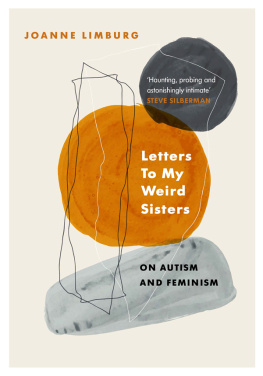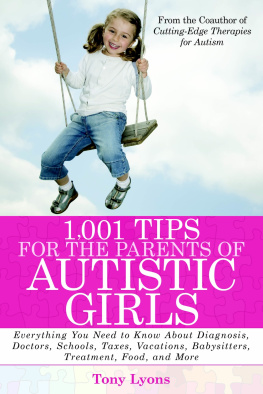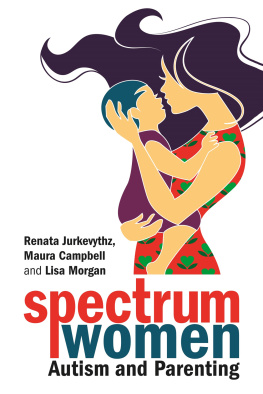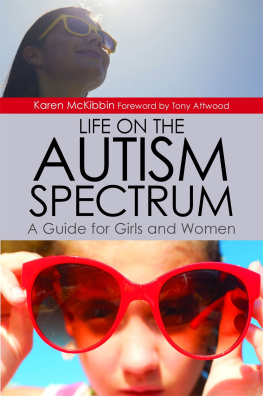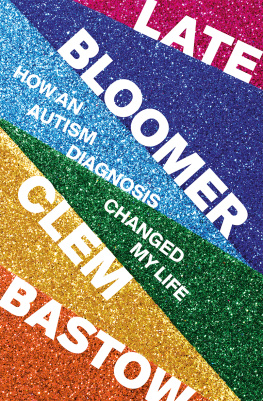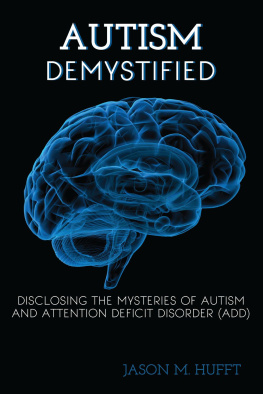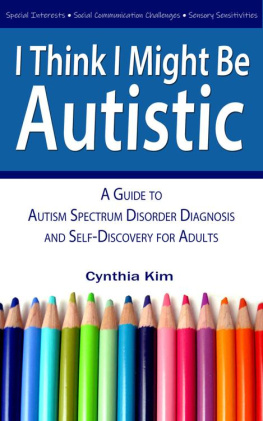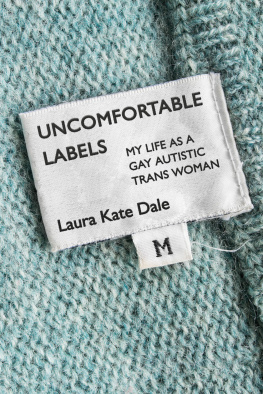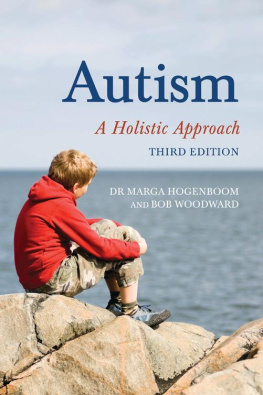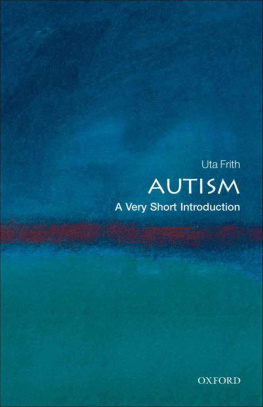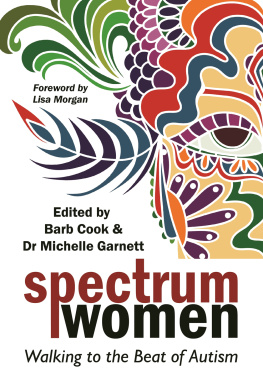Contents
Guide
Letters to My Weird Sisters
Also by Joanne Limburg
NONFICTION:
Small Pieces: A Book of Lamentations
The Woman Who Thought Too Much: A Memoir of Obsession and Compulsion
FICTION:
A Want of Kindness: a novel of Queen Anne
POETRY COLLECTIONS:
The Autistic Alice
Paraphernalia
Femenismo
Letters to My Weird Sisters
Joanne Limburg

First published in hardback in Great Britain in 2021 by Atlantic Books, an imprint of Atlantic Books Ltd.
Copyright Joanne Limburg, 2021
The moral right of Joanne Limburg to be identified as the author of this work has been asserted by her in accordance with the Copyright, Designs and Patents Act of 1988.
All rights reserved. No part of this publication may be reproduced, stored in a retrieval system, or transmitted in any form or by any means, electronic, mechanical, photocopying, recording, or otherwise, without the prior permission of both the copyright owner and the above publisher of this book.
Every effort has been made to trace or contact all copyright-holders. The publishers will be pleased to make good any omissions or rectify any mistakes brought to their attention at the earliest opportunity.
10 9 8 7 6 5 4 3 2 1
A CIP catalogue record for this book is available from the British Library.
Hardback ISBN: 978 1 83895 005 7
Ebook ISBN: 978 1 83895 006 4
Printed in Great Britain
Atlantic Books
An imprint of Atlantic Books Ltd
Ormond House
2627 Boswell Street
London WC1N 3JZ
www.atlantic-books.co.uk
i.m.
Caron Freeborn
19662020
Contents
Foreword:
Letter to the Reader, from Uncanny Valley
Dear Reader
You may have heard of Uncanny Valley. Its the term game designers, animators and animatronic designers use to refer to the uncomfortable feeling you get when you encounter a representation of a human figure that isnt quite human enough to convince, but is at the same time so very nearly human that the resemblance seems to call the lines between human/not-human and fake/real into question.
For some reason, human beings set a lot of store by the distinction between ourselves and everything else that exists, and it makes us uncomfortable when we cant locate it clearly. We call that feeling of discomfort of somethings being subtly, but indescribably off the feeling of uncanniness, from the German Unheimlichkeit, which literally means unhomelike, unsettled. We prefer a thing to be either familiar or strange, so that we know whether to welcome it or treat it with suspicion. When were faced with the strangely familiar, we dont know how were supposed to react.
Freud didnt formulate the concept of the uncanny that was the German psychiatrist Ernst Jentsch but he explored it in You can read work on this experience of uncanniness in all kinds of journals on all kinds of subjects. Youll probably have come across it, for example, in connection with ghost stories or horror films or photography. We know a lot about how it feels to encounter The Uncanny. We dont talk so much about how it feels to embody it, but it does happen.
Im pretty sure that everyone, at some time, has the experience of being uncanny. Im also fairly sure that, for most people, their experiences are rare, fleeting one-offs: maybe you met a distant relative at a family event and they thought for a moment that they were looking at your parent at the same age; maybe you were drunk or otherwise intoxicated in a way that made other people uneasy around you; maybe you found yourself briefly among strangers who didnt have a way of reading you; maybe you simply appeared for a moment at a time and in a place where the appearance of a person of your type was entirely unexpected. Think of the look you get from a room full of people when you open a door by mistake, and theyre in the middle of something a meeting, a seminar, a formal do with speeches that frozen look thats a mixture of shock and blankness with a hint of hostility. When you encounter it, you freeze in turn. Your stomach drops. You mutter an apology and close the door. I know that look very well and I dont even have to stumble into the wrong room to get it. I can elicit it just by walking down the street.
For my particular place and time, theres nothing obviously other about me. Im a middle-aged white woman in a majority-white country. Im not tall and Im only ordinarily short. I dress like youd expect a middle-aged straight white cis-woman to dress. Im on legs rather than wheels, and I can use them without a stick, or cane, or any other kind of mobility aid. Im not unusually fat or thin. My person and face arent remarkable either for their conventional attractiveness or for their distance from it. I dont have a guide dog or a white stick. I wear glasses, but so do a lot of people. If anything, Im remarkably nondescript. (If you want more convincing, a journalist once wrote that I was small, slight, bespectacled, nervous-looking and mousy-haired. I am not, nor have I ever been, mousy-haired I can only attribute this mistake to an overwhelming perception of general mousiness. You see nondescript.)
I dont startle people as much as I used to, partly because Ive learned how to arrange my face for the outside world, and also partly because Ive reached the age of female invisibility. It still happens sometimes, though, usually when Im particularly tired or stressed or preoccupied, and it happens like this: Ill be walking down the street, Ill catch someones eye incidentally, and their facial expression will change, not in a good way. A smile will disappear, a neutral look turn to one of bewilderment or anxiety; if weve reached that point when two strangers approach each other on a pavement, and its time to do the avoidance dance, theyll step aside a beat too soon; sometimes, for no reason that I can see, theyll apologize.
Ah, youre thinking, Resting Bitch Face. It is that, but its more than that, and other peoples problematic reactions to my presence dont begin and end on the street. All my life, in all kinds of contexts, Ive watched people sense something other about me, and react accordingly: some people back away as soon as they can, or push me away; some people narrow their eyes and try to figure me out; some read it as vulnerability and become protective; others read it as vulnerability and become predatory; a few people are drawn to it. One of my infant school teachers ordered me to smile; one of my junior school teachers told me not to look like that. People tell me I look furious when Im simply trying to concentrate. People start conversations I wasnt expecting and then tell me not to look so scared. People have told me Im too fidgety; other people have said that Im so still it freaks them out. Oh, and apparently I have a distinctive walk. My voice is too quiet but also too loud. And what am I looking at all the way over there?
I unsettle people. Im uncanny. Being around me doesnt always feel like being around a fellow human being, and that discomfort rarely brings out the best in people. If you dont register someone as a fellow human being, you are less inclined to treat them like one. Theyre a threat or a nuisance or an instrument or an object or your work or your responsibility or an interesting spectacle, but not a person. Its horrible being a not-person people who know themselves to be people will stand right in front of you, and talk about you in the third person as if you werent even there. Youll try and get their attention and theyll act like no one spoke. Its social death.

